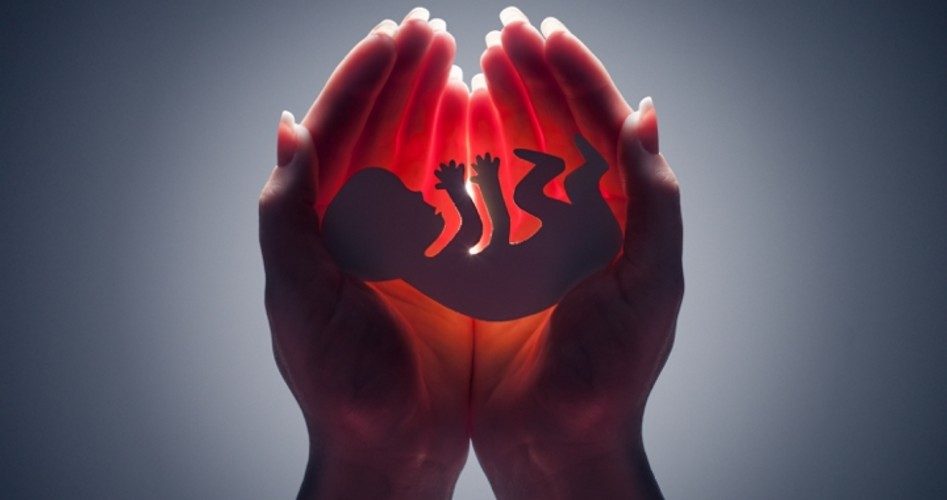
In 2013, federal law enforcement officials made a gruesome discovery in a Detroit warehouse, newly revealed photographs show. Agents found four “fetuses” — that is, dead preborn babies — in the warehouse that belonged to a man who sold human body parts, undoubtedly underscoring for many the need for greater regulation in the multimillion dollar a year body-parts industry.
According to Reuters, the warehouse at which the fetuses/preborn children were discovered belonged to businessman Arthur Rathburn. The discovered preborn babies had been intact after being submerged in a liquid that included human brain tissue. Reuters reports that the fetuses appeared to have been in their second trimester and it is unclear how Rathburn obtained them.
Were the fetuses found in Rathburn’s warehouse aborted? If they were aborted, is it wrong to sell them or their body parts? And if this is wrong, then wouldn’t it also have been wrong to have aborted these preborn children in the first place? Yet, as we know, abortion in the United States is legal.
And regarding Rathburn, he stands accused of sending diseased body parts to his customers and will stand trial in January.
The federal indictment against Rathburn and his wife Elizabeth states that they “sometimes obtained diseased remains from their suppliers at a reduced cost, due to the fact that end users of human remains generally reject infectious bodies and body parts for use in medical or dental training … falsely representing to those customers that the remains were free of certain infectious diseases. Arthur Rathburn used a chainsaw, band saw and reciprocating saw to dismember bodies without taking sanitary precautions.”
U.S. Attorney Barbara McQuade released a statement at the beginning of the year detailing the couple’s criminal activities.
“This alleged scheme to distribute diseased body parts not only defrauded customers from the monetary value of their contracts, but also exposed them and others to infection,” said McQuade. “The alleged conduct risked the health of medical students, dental students and baggage handlers.”
The disturbing photos provoked responses from key members of Congress.
Rep. Marsha Blackburn, who recently chaired a special House committee on the use of fetal tissue, reportedly “recoiled” when a Reuters reporter showed her some of the photographs. Four of the photos show a crime scene investigator in a hazmat suit using forceps to lift a different fetus from the liquid.
“This needs to be reviewed,” she said.
Rep. Bob Goodlatte (R-Va.), chairman of the House Judiciary Committee, also responded to the photos released by Reuters.
“The actions depicted in these photos are an insult to human dignity,” Goodlatte said. “[If individuals] violate federal laws and traffic in body parts of unborn children for monetary gain [they should be] held accountable.”
The discovery of the fetuses in the warehouse is particularly relevant as Congress has only recently concluded an investigation into fetal organ harvesting in which it found that Planned Parenthood and other abortion businesses, universities, and fetal tissue companies may have violated the law through the obtaining, sale, and purchase of fetal tissue. Recently, the FBI obtained unredacted documents pertaining to the investigation, signaling that the feds may be preparing a criminal probe.
But Reuters observed that the body parts industry in general operates with few regulations, which means that in states such as Michigan, where Rathburn’s warehouse is located, public health authorities are not required to inspect facilities engaged in this business.
And while it is illegal to sell body parts for transplant, no federal law regulates the sale of cadavers or body parts for research or education.
“The current state of affairs is a free-for-all,” said Angela McArthur, who directs the body donation program at the University of Minnesota Medical School and formerly chaired her state’s anatomical donation commission. “We are seeing similar problems to what we saw with grave-robbers centuries ago,” she added.
“I don’t know if I can state this strongly enough,” McArthur said. “What they are doing is profiting from the sale of humans.”
Reuters reports that body brokers “take cadavers donated to science, dismember them and sell them for parts, typically for use in medical research and education.” The industry is “built largely on the poor, who donate their bodies in return for a free cremation of leftover body parts.”
Reuters has produced a series that exposes abuses in the human body trade to underscore the lack of oversight of the industry. As part of the news agency’s investigation, a Reuters reporter purchased two human heads and a cervical spine — after just a few e-mails — from Restore Life USA at a cost of $900 and the cost for shipping.
When Blackburn learned of the purchase, she said it was “sickening.” In response, Restore Life owner James Byrd invited Blackburn to tour the facility and review the policies the organization has in place.
Graphic: Smitt/iStock/Getty Images Plus


